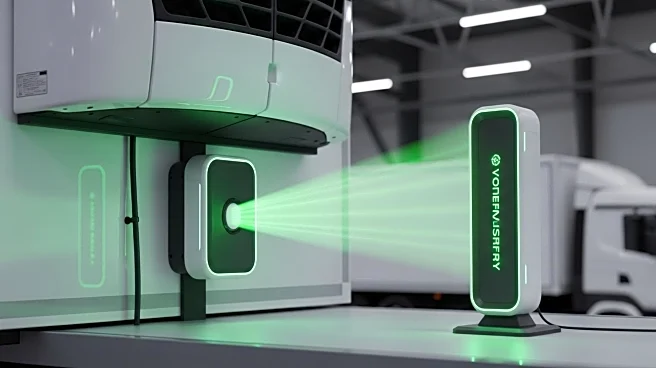What's Happening?
Rypos, an environmental services company based in Franklin, Massachusetts, has released a white paper addressing the reduction of emissions in transport refrigeration units (TRUs) without compromising cargo integrity. TRUs, essential for the cold chain, are typically powered by diesel engines, which contribute significantly to particulate matter and black carbon emissions. The company highlights the use of diesel particulate filters (DPFs) and optimized TRU practices as effective methods to reduce environmental impact while maintaining load integrity. Wayne Benson, Rypos national account manager for sustainability, emphasized the dual challenge fleet managers face in protecting food safety and reducing emissions. The California Air Resources Board's Ultra-Low Emission TRU rule and the EPA's proposed Tier 5 standards are pushing fleets to adopt cleaner technologies. DPF retrofits are presented as a viable solution, capable of reducing particulate emissions by up to 95% without affecting refrigeration performance.
Why It's Important?
The initiative by Rypos is significant as it addresses the growing regulatory pressure on fleets to reduce emissions from TRUs, which are crucial for maintaining the cold chain in food transportation. The environmental impact of refrigerated cargo is substantial, and failing to comply with stricter emission standards could lead to reputational risks and operational challenges for fleets, especially in urban areas. By offering solutions like DPF retrofits, Rypos provides fleets with a practical approach to meet current regulations and prepare for future standards. This development is crucial for the sustainability of the transport industry, as it balances the need for environmental responsibility with operational reliability.
What's Next?
Fleets are expected to increasingly adopt DPF retrofits as a near-term solution to meet emission standards while maintaining operational efficiency. As regulations continue to tighten, the industry may see a shift towards electrification and other zero-emission technologies. Fleet managers will need to stay informed about regulatory changes and invest in technologies that align with both compliance requirements and sustainability goals. The success of these initiatives could influence broader adoption of similar practices across the transport sector.









